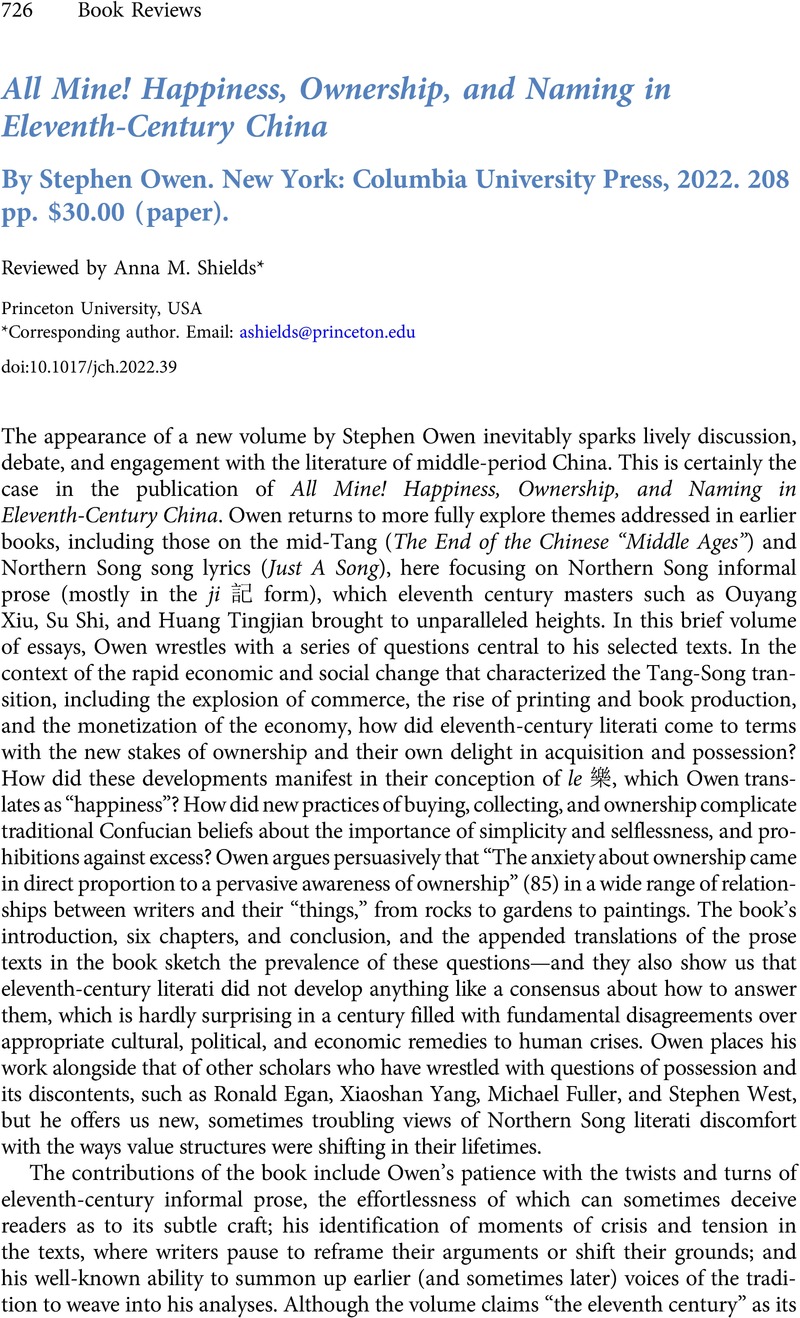No CrossRef data available.
Published online by Cambridge University Press: 04 September 2023

1 Here I choose “delight” as a translation in order to better approximate the transitive use of le as a verb. In its nominal form, “joy” comes closer as an English translation to the profundity of le in the Chinese tradition, but the verb “enjoy” suggests a feeling that is both more temporary and superficial than le. English simply does not have a close fit to the flexibility of the literary Chinese word.
2 For a summary of contemporary philosophical and psychological views of “happiness,” see the entry in the Stanford Encyclopedia of Philosophy, https://plato.stanford.edu/entries/happiness/ (accessed July 5, 2022).
3 For a discussion of the Mencian position on shared delight, see Virag, Curie, The Emotions in Early Chinese Philosophy (Oxford: Oxford University Press, 2017), 120–24CrossRefGoogle Scholar.
4 See the discussion of the relationship between joy and “wandering” in the Zhuangzi, in Virag, The Emotions in Early Chinese Philosophy, 138–39; 154–55; 158–160 (on the “delight of fish” 魚之樂).
5 For Su Shi's approach to his relationship with things, see also Egan, Ronald, Word, Image, and Deed in the Life of Su Shi (Cambridge, MA: Harvard University Press, 1994)Google Scholar, and his The Problem of Beauty: Aesthetic Thought and Pursuits in Northern Song Dynasty China (Cambridge, MA: Harvard Asia Center, 2006), esp. ch. 4, “Art Collecting and Its Discontents”; and Fuller, Michael A., “Pursuing the Complete Bamboo in the Breast: Reflections on a Classical Chinese Image for Immediacy,” HJAS 53:1 (1993), 5–21Google Scholar.
6 Editions vary on the modern punctuation for the line, but most punctuate it without a full stop, as follows: 明月時至,清風自來,行無所牽,止無所柅,耳目肺腸,悉為己有,踽踽焉、洋洋焉,不知天壤之間復有何樂可以代此也。.See, for example, Wenze, Li and Shaohui, Xia, eds., Sima Guang ji, 3 vols. (Chengdu: Sichuan daxue chubanshe, 2010), 3:1378Google Scholar.
7 Owen renders this as “finding it a self-contained happiness” (86). The concept of “obtaining [things such as delight, knowledge, etc.] on one's own” or “apprehending [things] in and by oneself” can be seen in several Northern Song writers (frequently in Su Shi's work) and became central to Daoxue conceptions of learning.
8 For one older essay that adopts a similar approach to Ouyang's writing, see Xianda Lian, “The Old Drunkard Who Finds Joy in His Own Joy—Elitist Ideas in Ouyang Xiu's Informal Writings,” Chinese Literature: Essays, Articles, Reviews CLEAR 23 (2001): ), 1–29.